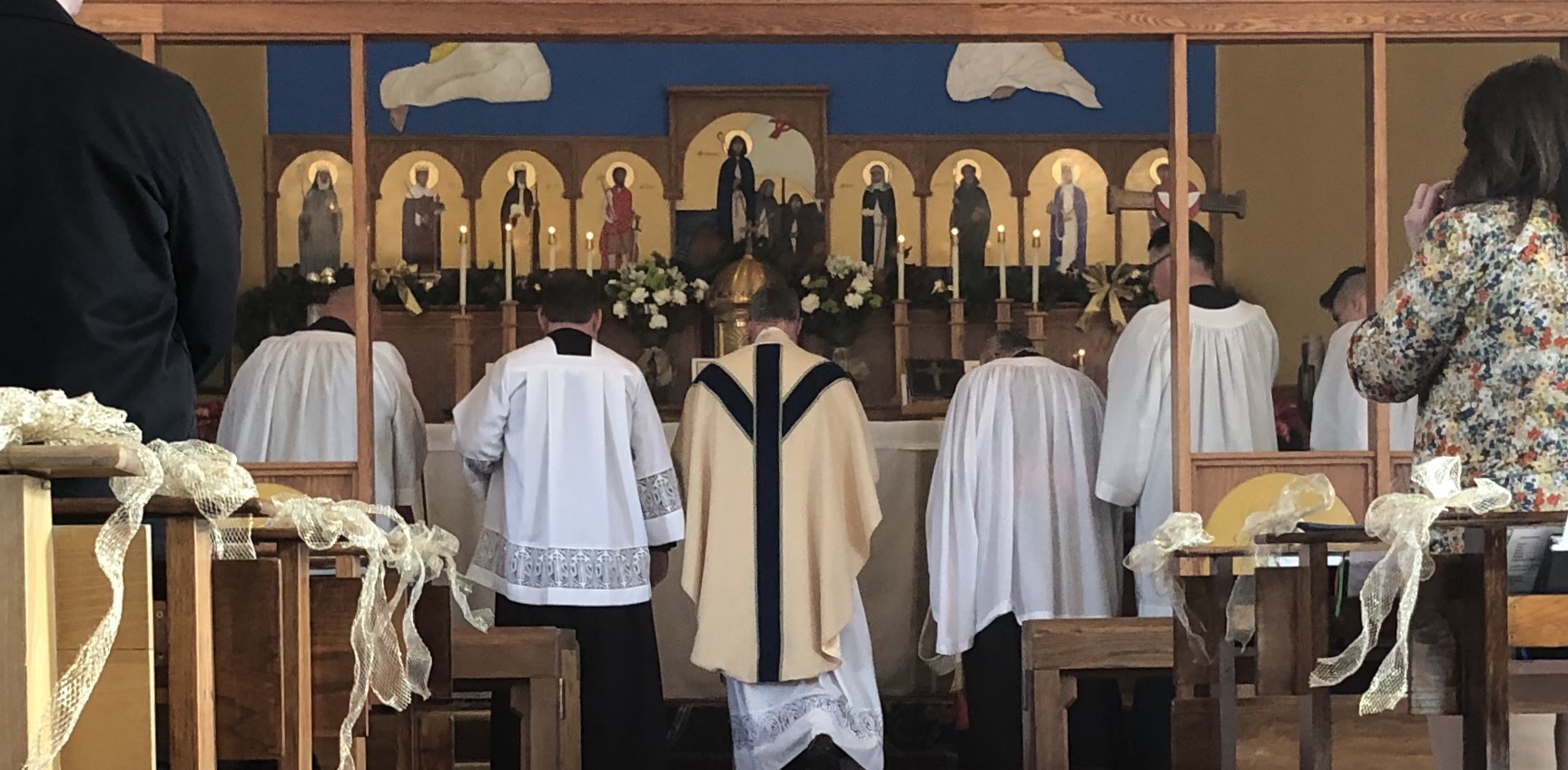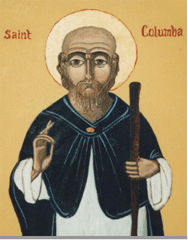This month we celebrate our patronal festival, the feast of St Columba, who died June 9, 597. An Irish prince, his name means Dove, like the Hebrew Jonah. He was born in Donegal, and educated in the abbey of Movilla, in what today is the rather dreary town of Newtonards. Subsequently, he moved to the monastery of Clonard, in County Meath, where he was tonsured as a monk and ordained priest. So, a holy man – Columbcille, he was called, Columba of the cell, or the dove of the cell, because he spent all his time in prayer and study. But even – perhaps especially – in the monastic cell the devil lurks; his greatest desire is to seduce and destroy those who are seeking for salvation. Thus, around 560, Columba became involved in a dispute with another saint, his erstwhile teacher, St Finnian of Movilla. The dispute revolved around ownership of a psalter that Columba had copied. We must remember that the book would have been expensive, as well as possesing spiritual significance, so it is not suprising that the quarell led ultimately to bloodshed, the so-called Battle of the Book, in which 3,000 warriors were killed.
Overcome with contrition, Columba went to his confessor, St Molaise, who told him that, as penance, he would have to save as many souls as he had caused to perish. Accordingly, Columba set out from holy Ireland to convert the pagan Scots. This corresponds to a practice well-known amongst the Celts, something we find replicated elsewhere in the Orthodox world, not least in Russia: perigrinatio pro Christo, pilgrimage, or exile, for the love of Christ, leaving home and family, enduring the hardship of travel, bringing the Gospel to other people, an exercise in the renunciation of self, matched by trust in God’s providential care. God willing, we will have other occasions to continue the story of our holy patron – including not least his encounter with the Loch Ness Monster. For now, however, let us pause to say three things.
First, the saints are not perfect (Philippians 3, 12): we are not perfect. Sin lies crouching at the door of our hearts (Genesis 4, 7), ever ready to spring, like a young lion hiding in the covert (Psalm 17, 12). So, we must always be vigilant, as St Peter says, concerning this same roaring lion (1 Peter 5, 8). Nepsate, is the Greek word he uses, the same word we often encounter in the noun-form, nepsis, in Orthodox spiritual writings. What does it mean? It means to be aware of the devil and his tricks, of the possibility of sin that surrounds us in myriad forms.
Second, if we sin, let that be a spur to do better. Another Greek saying, from Homer this time: aien aristeuein, ever to excel, ever to do better, to aim higher. Columba, had he not sinned, might have been a forgotten saint, his life hidden away in monastic obscurity. But his fall inspired him to win a whole nation for the Lord. What great thing will we sinners do for Christ?
Third, another question. How can we practice perigrinatio today? One thing I would suggest is this. The Irish ‘pilgrims’ were great evangelizers – St Columba himself, St Columbanus, St Gall, St Killian. All these men undertook pilgrimage for Christ – and, in so doing, brought the Gospel to countless peoples. So, maybe we can ask ourselves, How can I bring Christ to others?
With every good wish and blessing,
Fr David.

